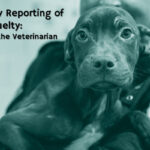Neglect, an insidious form of maltreatment, permeates the zeitgeist of societal concerns. Sporadically, we observe it manifesting in the lives of both children and animals, yet its broader implications remain largely overshadowed by more overt acts of cruelty. The very concept of neglect invites a profound exploration into its ramifications and the often-ignored facets that contribute to its prevalence. Herein, we will delve into the corrosive effects of neglect, considering its psychological, social, and ethical dimensions.
At the outset, it is imperative to delineate what constitutes neglect. In its simplest terms, neglect can be defined as a failure to provide necessary care or attention, be it physical, emotional, or intellectual. This lack of provision can leave enduring scars, particularly in vulnerable populations, such as children and animals. We frequently equate the term with deprivation; however, it transcends mere absence. Neglect is a perplexing blend of oversight and active indifference, where duty dissolves into apathy.
From a psychological perspective, neglected individuals often grapple with a sense of abandonment, which fosters a myriad of emotional disorders later in life. Neglected children may struggle with anxiety, depression, and attachment issues as they navigate adolescence and adulthood. Concurrently, animals subjected to neglect often exhibit behavioral abnormalities. They may develop traits of aggression, withdrawal, or compulsive behavior, mirroring the traumas they endured. Thus, the psychological toll of neglect unfurls a complex tapestry of emotional turmoil that can perpetuate into subsequent generations.
Further complicating this issue is the reality that neglect is frequently intertwined with broader societal factors. Inadequate access to resources, socioeconomic disparities, and systemic inequities lay the groundwork for neglect to take root. Often, these elements converge to create an environment where caregiving becomes a Herculean task, leading to the tragic consequence of neglect. For example, families facing economic hardship may prioritize survival over emotional nurturing, inadvertently neglecting the very needs that ensure holistic development.
Compounding the societal influences that breed neglect is the role of education—or, lamentably, the lack thereof. Awareness and understanding of the signs and ramifications of neglect are pivotal in mitigating its occurrence. A populace that is educated on the effects of neglect is more equipped to identify and intervene in neglectful situations. Yet, education remains insufficiently disseminated, particularly in low-income communities where the focus often skews towards immediate survival rather than long-term emotional well-being. This gap in knowledge ultimately perpetuates a cyclical nature of neglect, as those who are neglected may not possess the tools to advocate for themselves or their dependents.
Moreover, the moral implications of neglect invoke critical discussions about responsibility and accountability. The juxtaposition of neglect against other forms of cruelty begs the question: is neglect a passive act of cruelty? While the legal framework often perceives neglect as a less severe transgression compared to overt abuse, the psychological aftermath can be equally, if not more, devastating for the victim. It incentivizes a reevaluation of how society treats instances of neglect—a paradigm shift that is essential for fostering change.
In exploring the ethical concerns surrounding neglect, it is vital to acknowledge the fauna that often suffer in silence. Animals live in symbiotic relationships with humans, frequently reliant on their guardians for care. Neglecting an animal fundamentally infringes upon their right to a life free from unnecessary suffering. Moreover, it raises ethical dilemmas surrounding speciesism—the belief that one species, typically humans, holds greater moral significance than others. Advocating for neglected animals is not merely an act of kindness; it reflects our moral imperative to treat all sentient beings with dignity and respect.
Furthermore, societal perceptions of neglect may significantly influence the approach to addressing it. Often, neglect is dismissed as an unfortunate but inevitable aspect of life. Such attitudes foster an apathetic culture that endorses inaction. The normalization of neglect leads to desensitization—an alarming phenomenon that pervades both social attitudes towards human and animal welfare. To combat this, a concerted push for advocacy, awareness campaigns, and community engagement must occur. The discourse on neglect needs to shift towards a proactive stance that champions intervention rather than passivity.
Addressing neglect requires an intricate tapestry of coordinated efforts—education, advocacy, and societal reform must intertwine to forge a path towards resolution. Community interventions, created from a grassroots level, can embolden individuals to take ownership of the issue. Sharing resources, engaging in dialogues that heighten awareness, and offering support systems can create a facilitative environment for change. Working collectively, society can dismantle the complacency surrounding neglect, inspiring responsibility in the stewardship of both children and animals.
In summation, neglect remains a pervasive issue that demands our immediate attention. It is not merely a consequence of personal failures but a reflection of societal structures that allow it to flourish. Whether examining the emotional ramifications for individuals or the ethical implications concerning animals, the intricacies of neglect unfold a deeply rooted concern that spans far beyond the observable realm. Addressing it calls for a multifaceted and introspective approach that challenges us to confront discomfort and take actionable steps toward inclusivity and care. It is high time we not only recognized but actively dismantled the stigma surrounding neglect, advocating for those who cannot voice their suffering and championing a future defined by compassion and responsibility.








